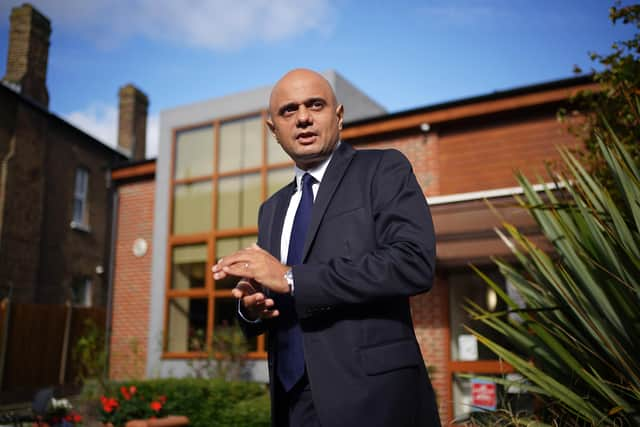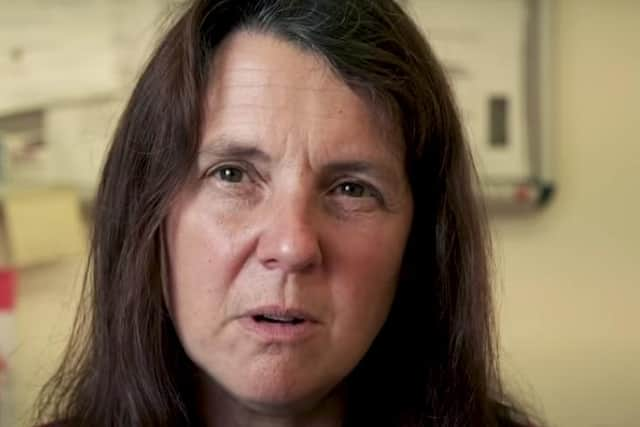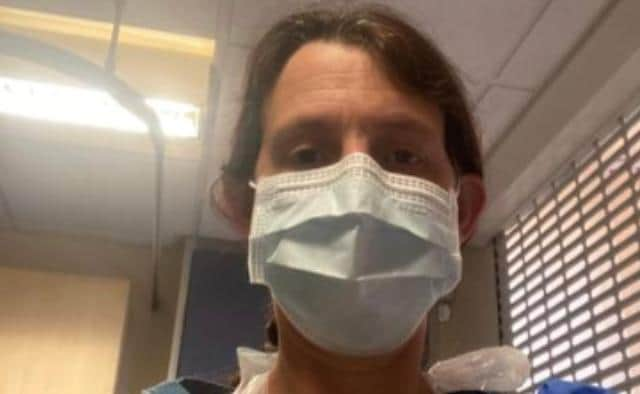Sheffield GP slams Government £250m ‘boost’ for extra patient appointments as not enough
and live on Freeview channel 276
Last week, Health Secretary Sajid Javid announced a £250 million ‘winter access fund’, aimed at enabling GP practices to improve availability and increase the number of face-to-face appointments and same-day care.
The new investment will fund locums as well as support for GPs from other health professionals such as physiotherapists and podiatrists.


Advertisement
Hide AdAdvertisement
Hide AdHowever, the investment comes in tandem with a scheme where GP surgeries that fail to provide an appropriate level of “access” will be named and shamed in league tables as patients are given a new right to demand face-to-face appointments.
And practices which fail to provide an ‘appropriate’ level of face-to-face appointments will not be eligible for the new funding.
The proposals have been condemned by swathes of medical professionals for being making unrealistic demands of an overstretched service, as well as opening GPs up for more abuse as they try to cope with the backlog brought on during the pandemic, as well as increasing demand on their services.
Dr Alison Hobbs, GP at Pitsmoor Surgery, said: “The sustained media and Government attack on primary care is soul destroying. Morale is rock bottom.


Advertisement
Hide AdAdvertisement
Hide Ad“This new initiative runs a significant risk of making the problem worse: many GPs are considering their options - looking for work outside of the NHS, abroad or retirement.
“The obsession with the percentage of face to face appointments is unhelpful and deflecting attention from the main problem: too few doctors and other allied health professionals working in primary care to meet the demand.
“The constant media noise is driving up demand; the public are being led to believe they are entitled to more than they can realistically expect and this is just exacerbating the problem.”
Primary care deals with approximately 90 per cent of patient contacts within the NHS yet receives only eight per cent of the funding, Dr Hobbs explained.


Advertisement
Hide AdAdvertisement
Hide AdShe said: “This has been systematically reduced by the Tory Government. The British Medical Association have repeatedly called for it to be increased to a minimum of 11 per cent.
“However the problem is more deep rooted than funding: even were this money to make its way back to primary care there isn't the workforce out there to employ.
“This new package of £250 million equates to under £4 per patient. It brings our average funding per patient up to a whopping £154 per year. Most people would spend more on hair cuts in a year. It costs £180 to insure a hamster's vet bills.”
Dr Hobbs also said that, while the Government may be ‘obsessed’ with face-to-face appointment numbers, not every patient feels the same way.
Advertisement
Hide AdAdvertisement
Hide AdIn fact, in-practice surveys of the people who use the Pitsmoor Surgery has in fact shown that many patients prefer remote treatments, as long as it is done well.
Dr Hobbs explained: “Practices have always differed in how they choose to meet demand. However at the start of the pandemic we were directed by our leaders to adopt a total triage model.
“This means all requests for appointments are looked at first and appointments allocated appropriately based on need.
“This model was being introduced slowly by many practices well before the pandemic as it was recognised as a safe, fair and efficient alternative to the traditional 'fastest finger first' approach where the people who get through first or shout the loudest get the appointments. We have been using this model since 2017.”
Advertisement
Hide AdAdvertisement
Hide AdThe way this system works is that all requests come to a central point in the practice and anything bar the clearly administrative, such as requests for routine prescriptions, are sent to a doctor who then allocates them to the clinicians working that day.
A modern general practice comprises a multidisciplinary, specialised team, containing nurse practitioners, nurses, health care assistants, physios, pharmacists & physicians associates alongside the traditional GPs.
Therefore, each request is tailored to need - for example if it's an issue with a wound dressing it would be sent to a nurse; more 'minor ailments' such as coughs and colds might be sent to a nurse practitioner or physicians associate or someone with back pain would be sent to the physio.
The new system which incorporates remote services has also dramatically increased the chance of a patient receiving same-day care, Dr Hobbs said.
Advertisement
Hide AdAdvertisement
Hide AdShe explained: “A big difference between us and many other local practices is that we chose to work this way and were not forced into it. We have spent time training our clinicians on remote consulting and to a certain extent our patients have been trained too.
"They know which day to contact us so they can be put through to their own GP for continuity. They trust the system because they have seen how well it works and how much more efficient we can be by using it.
“Each individual clinician then has the ability to work with the patient in terms of how best to deal with them. Many things can be simply and safely dealt with by phone or message.
“New technology allows us to arrange video calls where necessary. But those people who need a face to face consultation - for example needing a physical examination - are brought down to the surgery, usually the same day.
Advertisement
Hide AdAdvertisement
Hide Ad“Patient satisfaction with the system is very high. Over 80 per cent of people rate it as better than the previous one.
“Prior to introducing it patients were waiting as long as nine weeks to see certain doctors. Now anyone who needs seeing will be done so, usually same day.”
